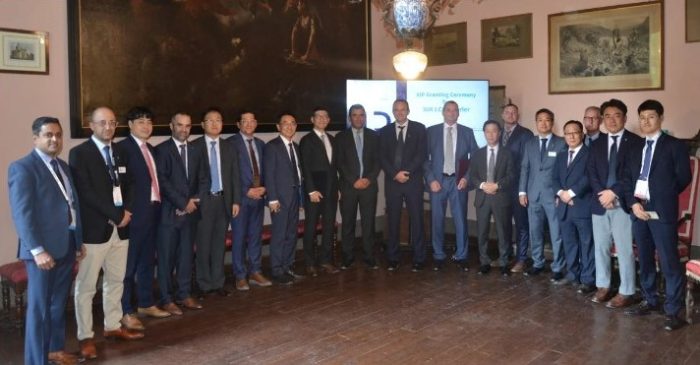LR and Liberian International Ship and Corporate Registry (LISCR) have awarded Design Approval to Hyundai Mipo Dockyard (HMD) for the development of the world’s first 30,000cbm liquefied carbon dioxide carrier.
The new carrier will incorporate a new type of steel in its tanks, supporting greater efficiencies in the carbon capture and storage (CCS) value chain.
When built, the carrier will transport liquefied carbon dioxide under pressure, allowing carbon captured to be transported to storage facilities. Liberian Flag Administration will liaise with LR to formalise the approval and provide the required certification to allow the LCO2 Carrier to enter into service.
The steel used in the Type C LCO2 tank construction will make scantling lighter whilst keeping the tanks’ structural integrity intact. This innovation allows an upscale in the size of the LCO2 carrier, improving storage and transportation, something shipbuilders were not able to do with more conventional materials.
Ship manager Capital Gas Ship Management Corp. (Capital Gas) has joined this venture with HMD and LR, advising on operational and commercial matters relating to the project for LCO2 carrier design development.
Andy McKeran, Chief Commercial Officer, Lloyd’s Register, said on the occasion:
This vessel will be a key piece of infrastructure in the carbon capture and storage value chain, helping remove greenhouse gases from the atmosphere, supporting the progress to a net zero carbon economy
Furthermore, Thomas Klenum, Executive Vice President, Liberian Registry, explained that “this innovative LCO2 Carrier design utilising new materials for the cargo tanks is an industry first and will play a vital role in our pursuit for global decarbonisation through carbon capture and storage.”
HMD has already developed three different LCO2 carriers to flexibly respond to the market demands in terms of different business models in the CO2 value chain, which include 12,000cbm LCO2 carrier with high pressure cargo tanks, 22,000cbm LCO2 carrier with low pressure cargo tanks and 30,000cbm LCO2 carrier with low pressure cargo tanks.































































